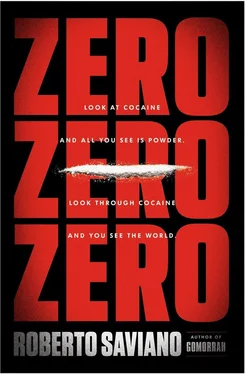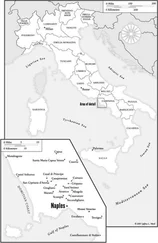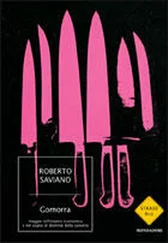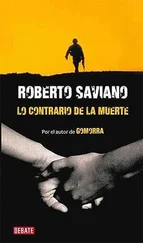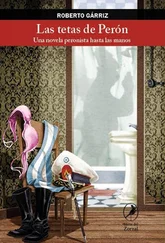The police officer closed his notebook. “The kid, it was like he came out of a trance.”
And then the officer told me what the young man had asked him: “So am I betraying the organization now, letting you listen to this?”
“Write about it,” the police officer said to me. “We got our eye on him. I’ll put three guys on his ass, twenty-four hours a day. If someone tries to close in on him, we’ll know he wasn’t bullshitting, that it isn’t some joke, this is a real boss talking.”
That story really stunned me. Where I come from, it’s what they’ve always done. But it was strange to hear those same words in New York. Where I come from, you don’t join merely for the money; you do it above all in order to belong, to have a structure, to move as if on a chessboard. To know exactly which piece to move and when.
“It’s risky, I think,” I said to him.
“Do it,” he insisted.
“I don’t think so,” I replied.
I couldn’t sleep. I tossed and turned. It wasn’t the story itself that struck me so much. It was the whole chain that left me perplexed. I’d been contacted to write the story of a story of a story. The source — the old Italian — I trusted instinctively. A bit because, when you’re far from home, whoever speaks your language, I mean your very same language — same codes, same locutions, same vocabulary, same omissions — you recognize immediately as one of your own, as someone to pay attention to. And also because his speech was delivered at the right time, to exactly the people who needed to hear it. If those words were true, they signaled a most dreadful turning point. The Italian bosses, the last remaining Calvinists of the West, were training new generations of Mexicans and Latin Americans, the criminal bourgeoisie born of drug trafficking, the most ferocious and hungry recruits in the world.
I couldn’t stay still. My bed felt like a wooden plank, my room like a cell. I wanted to pick up the phone and call that police officer, but it was two in the morning and I didn’t want him to think I was crazy. I went to my desk and started an e-mail. I would write about it, but first I had to understand more. I wanted to listen to the actual recording. That training lesson about how to be in the world wasn’t only for mafia affiliates but for anyone who decides they want to rule on this Earth. Words no one would utter with such clarity unless he were training people. When you talk publicly about a soldier, you say he wants peace and hates war, but when you’re alone with him, you train him to shoot. That speech was an effort to bring Italian organized crime traditions into South American organizations. That kid wasn’t boasting at all.
I got a text. The young man, the informer, had wrapped himself around a tree while driving. It wasn’t revenge. Just a fancy Italian car he didn’t know how to drive, and he slammed it into a tree. End of story.
Don Arturo is an elderly gentleman who remembers it all. And he’ll talk about it to anyone who’s willing to listen. His grandchildren are too big, he’s already a great-grandfather, and he prefers to tell the little ones other stories. Arturo tells of how one day a general arrived, dismounted his horse, which seemed incredibly tall but was merely a healthy animal in a land of skinny, arthritic beasts, and ordered that all the gomeros —the peasants who raised opium poppies — be rounded up. Burn all the fields: It was an order. That’s the way the government works. Do it or end up in jail. For ten years. Jail, the gomeros all thought, the sooner the better. Growing grain again was worse than going to jail. But during those ten years their children wouldn’t be able to grow poppies, and the land would be seized or, in the best of circumstances, devastated by drought. The gomeros merely lowered their eyes: Their lands and their poppies would all be burned. Soldiers arrived and dumped diesel fuel on the soil, the flowers, the mule tracks, the paths leading from one estate to another. Arturo told how fields once red with poppies were now stained black with buckets of dark, dense diesel fuel, how a foul smell saturated the air. Back then, the work was all done by hand; those big poison pumps didn’t exist yet. Bucketfuls of stench. But that’s not the reason old Arturo remembers it all. He remembers because it was there that he learned how to recognize courage, and that cowardice tastes of human flesh. The fields caught fire, but slowly. Not a sudden burst of flame, but row by row, fire contaminating fire. Thousands of flowers, stems, and roots catching fire. The peasants all watched, and so did the police and the mayor, the women and the children. A painful spectacle. Then all of a sudden they saw screaming balls of fire come shooting out of the nearby bushes. Living flames, it seemed, leaping and gasping for breath. But the fire hadn’t suddenly come to life — these were animals. Asleep among the poppies, they hadn’t heard the noise or smelled the diesel fuel, which they’d never smelled before. Flaming rabbits, stray dogs, even a small mule. All on fire. There was nothing to be done. No amount of water can put out diesel flames on flesh, and besides, the land all around was on fire. The howling beasts were consumed right before the people’s eyes. And that wasn’t the only tragedy. The gomeros who had gotten drunk while dumping the fuel, they too caught fire. They drank cerveza as they worked, and then fell asleep in the brush. The fire took them, too. They howled a lot less than the animals, staggering around as if the alcohol in their veins were feeding the fire from within. No one went to help them; no one ran over with a blanket. The flames were too fierce.
That’s when Don Arturo saw a dog, all skin and bones, run toward the fire. The dog dove into that inferno and came out with two, three, finally six puppies, rolling each one on the ground to put out the flames. Singed, spitting smoke and ashes, covered in sores, but alive. They stumbled after their mother, who walked past the people gazing at the fire. She seemed to look right at each one of them, her eyes piercing the gomeros , the soldiers, and all the other miserable human beings who were just standing there. An animal senses cowardice. And respects fear. Fear is the more vital instinct, and deserves more respect. Cowardice is a choice, fear is a state of mind. That dog was afraid, but she dove into those flames to save her young. Not one man had saved another man. They’d let them all burn to death. That’s how the old man told it. There is no right age for understanding. To him it came early, when he was only eight. And he remembered this truth till he was ninety: Beasts have courage and know what it means to defend life. Men boast about courage, but all they know how to do is obey, crawl, get by.
For twenty years there were only ashes where poppies had once grown. Then one day, Arturo recalled, a general came. Another one. On estates in every corner of the Earth, there’s always someone who appears in the name of a powerful figure, someone with a uniform, boots, and a horse — or an SUV, depending on when we’re talking about. He ordered the peasants to become gomeros again, Arturo remembered. Enough with grain, time for poppies again. Drugs again. The United States was preparing for war, and before the guns, before the bullets, tanks, planes, and aircraft carriers, before the uniforms and boots, before everything else, the United States needed morphine. You don’t go to war without morphine. If any of you have been in pain, excruciating pain, you know what morphine is: peace from suffering. You don’t go to war without morphine, because war is suffering, broken bones, and lacerated flesh. There are treatises and demonstrations, candles and pickets for people’s outrage. But for burning flesh there’s only one thing: morphine. Maybe you live in the part of the world that is still fairly tranquil. You know the cries of hospital wards, of women in labor, of the sick, of children who scream and joints that dislocate. But you’ve probably never heard the screams of a man hit by a bullet, his bones shattered by a submachine gun or shrapnel, his arm or half his face ripped off. Those are real cries, the only ones memory cannot forget. Our memory of sounds is fleeting; memories are linked to actions, contexts. But the cries of war never go away. Veterans and reporters, doctors and career soldiers all wake up to those cries. If you’ve heard the screams of a dying man, or one lying wounded in the middle of a battlefield, there’s no point spending money on psychoanalysts or seeking comfort. You’ll never forget those screams. Only chemistry can stop them, soothe them, only chemistry can lessen the pain. At the sound of those cries, the other soldiers all turn to stone. Nothing is less militaristic than the screams of someone wounded in battle. Only morphine can silence those cries and let the others go on thinking they’ll get off scot-free, come out unscathed, be victorious. And so the United States, which needed morphine for war, asked Mexico to increase its opium production, and even helped build a railroad to facilitate transportation. How much opium was needed? Lots. As much as possible. Arturo had grown up by then. He was almost thirty, already had four kids. He wasn’t about to set fire to his fields, as his father had done. He knew what would happen — first they’d ask, then they’d order him to do it. So when the general left, Arturo took the back roads and caught up with him. He intercepted the general’s caravan and negotiated. He would sell a portion of his opium on the black market. The bulk would go to the government, which would sell it to the United States military; the rest he’d smuggle out, for those Yankees who wanted to enjoy a little opium or morphine. The general accepted the proposal in exchange for a hefty cut. And on one condition: “You get your opium across the border yourself.”
Читать дальше
